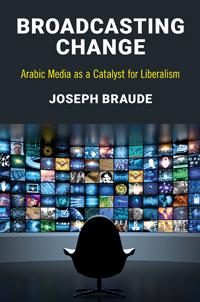Iran critics give Trump’s JCPOA decertification mixed reviews, while Russia rewards Saudi Arabia for warming relations. To subscribe to this daily roundup by Mideast specialist Joseph Braude, click here. The new White House strategy on Tehran is more savvy than its critics claim, writes Amir Taheri in Asharq Alawsat …: “Had he renounced the JCPOA in a formal way, Iran’s leaders could have cast themselves as victims of ‘imperialist bullying’ and deployed the Europeans . . . to fight in their corner. Now they cannot do that because all that Trump is demanding is a stricter application of the measures that the EU and others say they mean to defend. … [The measures, he writes, amount to a more holistic view of relations with Iran, to include accountability on support for terror, human rights violations, and hostage-taking.] But Eli Lake at Bloomberg sees a betrayal of Trump’s promise to nix the JCPOA: “Trump fails to address the greatest threat the rogue regime poses: its expansion in Syria and Iraq. … In some ways Trump’s decisions Continue Reading…
Author • Broadcaster • Middle East Specialist
New and Noteworthy in Arab and Islamic Affairs, 10-16-17
New and Noteworthy in Arab and Islamic Affairs, 9-8-17
A delay in Saudi economic reforms, a shift in Saudi discourse, and an axis of neutrality in North Africa. To subscribe to this daily roundup, click here. Saudi Arabia’s “Vision 2030” undergoes a revision. “An internal document seen by the Financial Times labels the amended plan NTP 2.0 and adds: ’The timeline of the NTP will continue to 2020, but the plan requires implementation of objectives for 2025 and 2030.’ Importantly, the kingdom’s most closely watched reform effort, the partial privatisation of state oil monopoly Saudi Aramco, sits outside the NPT. No suggestion is made that the NTP’s redrafting will affect the initial public offering of 5 per cent of Saudi Aramco, planned for next year.” So does rhetoric toward Israel and Iran in Saudi media. A directive was reportedly issued to all Saudi media outlets calling for a “lightening of language” in discussions of the two countries. Four North African states adopt neutrality toward the crisis in the Gulf. A Washington Post report cites a combination of “fears of Continue Reading…

Recent Posts
- Reclamation: A Cultural Policy for Arab-Israeli Partnership
- Arab Council for Regional Integration Responds to the Trump Peace Plan
- A new book on how Arab liberals are promoting social change through media
- New and Noteworthy in Arab and Islamic Affairs, 10-29-17
- New and Noteworthy in Arab and Islamic Affairs, 10-16-17
Recent Comments
- Dr. Hanan J Al-Said on No longer welcome in Bahrain
- Joseph Braude on Making Waves
- Youssef tsouli on On the Politicization of Jewish-Muslim dialogue
- Andrew on Making Waves
- shahida begum on The Muslim Brotherhood and the Gulf
Archives
Copyright © 2024 Joseph Braude